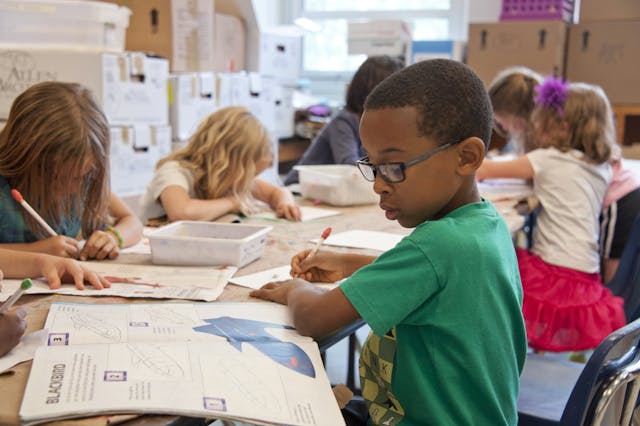How To Help Kids Cope
As the new school year approaches, many children experience a mix of excitement and anxiety. The transition from summer to school can be overwhelming, but with the right support from parents, children can manage their feelings and start the year off positively. Here are practical strategies to help parents ease their child’s back-to-school anxiety:
Understanding Back-to-School Anxiety
Back-to-school anxiety is a common experience for children and can stem from various sources like fear of the unknown, academic pressure, or social concerns. It's important to recognize signs of anxiety, such as physical symptoms, emotional changes, and behavioral shifts, to address them early.
Practical Strategies For Parents
Establish a Back-to-School Routine
Help your child transition smoothly by creating a consistent routine. Setting a bedtime schedule, organizing school supplies in advance, and establishing a predictable morning routine can reduce stress and help children feel more in control.
Open Lines of Communication
Encourage your child to express their feelings by asking open-ended questions. Active listening and empathetic responses can make children feel heard and supported. Discussing the upcoming school year well in advance can help alleviate back-to-school anxiety.
Validate Their Feelings
Assure your child that feeling nervous is normal and share your own experiences with anxiety. By demonstrating that these feelings are temporary and manageable, you can help your child navigate their emotions.
Practice Role-Playing Scenarios
Build your child's confidence by role-playing different situations they may encounter at school. This can help reduce fear and make real-life interactions easier, especially for children transitioning to a new school.
Work With Teachers and School Staff
Establish a strong relationship with your child's teachers and school staff to address any concerns. School counselors trained in online school counseling programs can offer valuable support and resources to help children cope with anxiety.
Seek Professional Help if Necessary
If your child's anxiety persists, consider seeking professional support. Consult your local GP for a referral to a child psychologist or therapist specializing in anxiety. Early intervention can make a significant difference in managing anxiety.

Building Emotional Resilience In Children
Helping your child develop emotional resilience is essential for handling challenges effectively. Teach mindfulness, encourage self-expression, and celebrate small wins to boost your child's confidence and foster a positive outlook.
Helping Kids Navigate Social Challenges
Socializing can be daunting for children, especially if they are shy or new to school. Encourage participation in clubs, arrange playdates with classmates, and teach strategies for dealing with bullying to help children navigate social challenges.
Encouraging Independence And Problem-Solving
Foster independence in your child by assigning age-appropriate tasks and encouraging problem-solving skills. By empowering your child to take on responsibilities and solve problems, you help build their confidence and resilience.
Moving On From Anxiety
Back-to-school anxiety is a natural response to change, but with parental support, children can overcome their fears and thrive. Establishing routines, open communication, and seeking professional help when needed can ease the transition and set children up for a successful school year.
Remember, every child adjusts at their own pace. Stay patient, supportive, and proactive in addressing your child's needs.
